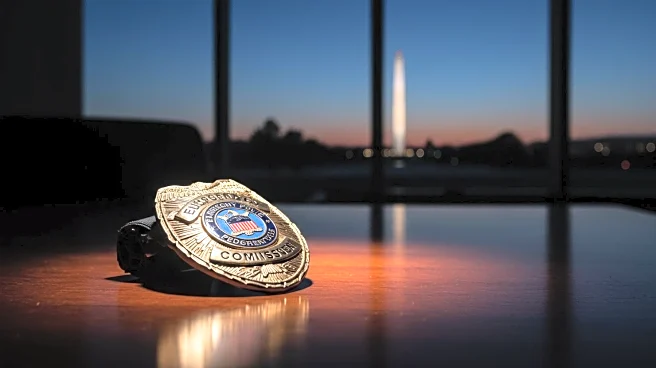What is the story about?
What's Happening?
Attorney General Pam Bondi has appointed Terry Cole, the head of the Drug Enforcement Administration (DEA), as Washington, D.C.'s 'emergency police commissioner.' This decision follows President Trump's unprecedented move to take control of the Washington police department. Bondi has granted Cole the powers of police chief, requiring the Metropolitan Police Department to obtain his approval before issuing any orders. This appointment has sparked controversy, with the capital city's attorney general labeling Bondi's action as 'unlawful,' potentially leading to a legal dispute. Cole, who was recently confirmed by the U.S. Senate as the DEA's leader, has a long history in law enforcement, including 22 years at the DEA and previous roles in Virginia and New York State.
Why It's Important?
The appointment of Terry Cole as emergency police commissioner in Washington, D.C. is significant as it represents a direct intervention by the federal government in local law enforcement. This move could have implications for the autonomy of local police departments and the balance of power between federal and local authorities. The decision may affect public policy, particularly regarding immigration enforcement, as Bondi has rescinded previous directives limiting inquiries into immigration status. This could lead to changes in how immigration laws are enforced in the capital, impacting communities and potentially leading to legal challenges from local officials who oppose federal overreach.
What's Next?
The appointment of Terry Cole is likely to lead to legal challenges from local authorities, including the District of Columbia Attorney General Brian Schwalb, who has already issued a memo stating that local officers should continue to follow existing orders over Bondi's directives. This sets the stage for a potential legal battle over the authority of the Trump administration to alter the chain of command within the police department. The outcome of this dispute could have broader implications for federal intervention in local governance and law enforcement practices across the United States.
Beyond the Headlines
This development raises questions about the ethical and legal dimensions of federal intervention in local law enforcement. It could set a precedent for future administrations to exert control over local police departments, potentially undermining local governance and community trust. The move may also influence public perception of federal authority and its role in local matters, sparking debates about the balance of power and the protection of civil liberties.















